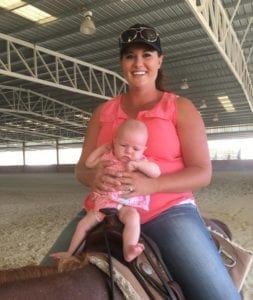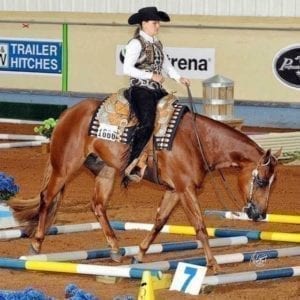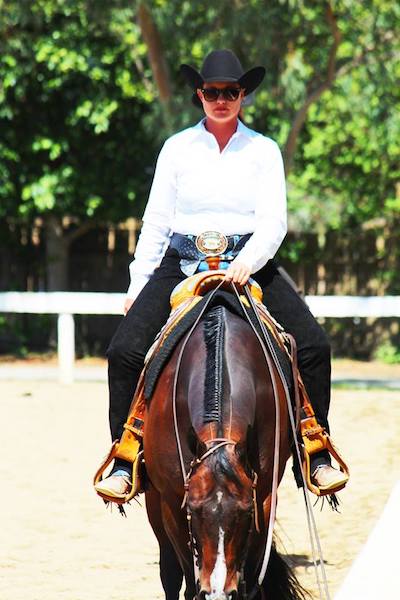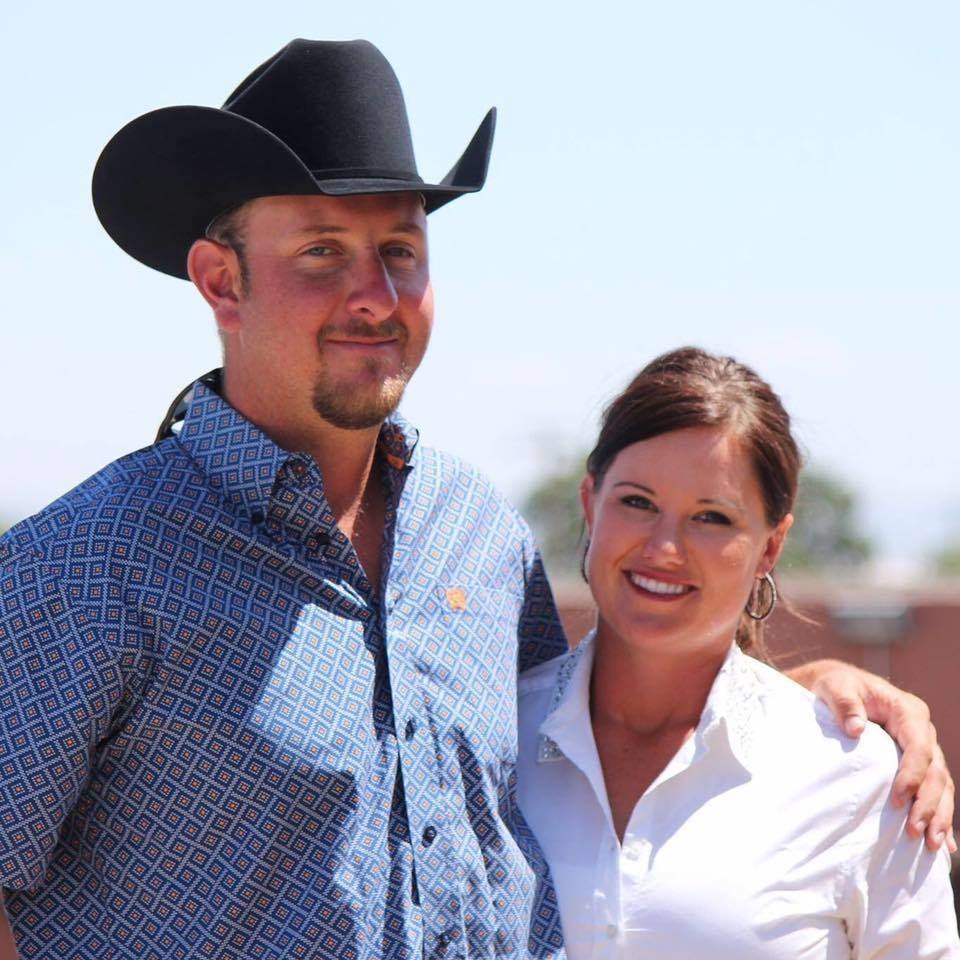To be a horse trainer is to be willing to deal with the daily toils and the rigorous ups and downs of getting horses ready to show year-after-year. However, we only see a fraction of the countless hours of labor they put in for their clients to succeed in the show pen.
But has anyone ever stopped to think what we’d do without them? Sure, we may get by for a while with the horses already trained but would the industry continue to grow or would we no longer be able to do what we love?
For more insight on this topic, we talked to Jenn Wheeler of Wheeler Performance Horses, who trains with husband, Justin Wheeler out of Hollister, California.
There’s no hiding the fact that the youth exhibitors are the future of our industry. Even though they are a vital part of our industry, not many aspire to become trainers. It is common knowledge that the process of becoming a trainer is not an easy one.
Jenn explained the process that she went through to become a professional horsewoman.  “I made sure I ventured out and learned other disciplines. I worked for reining and cowhorse trainers and took a couple of dressage lessons. Being a well-rounded trainer has always been important to me,” Wheeler states. “I always tell Justin that my biggest goal in my career is being remembered as a good hand, like Benny Guitron. You don’t see as many young people wanting to do to these things anymore, and it’s unfortunate.”
“I made sure I ventured out and learned other disciplines. I worked for reining and cowhorse trainers and took a couple of dressage lessons. Being a well-rounded trainer has always been important to me,” Wheeler states. “I always tell Justin that my biggest goal in my career is being remembered as a good hand, like Benny Guitron. You don’t see as many young people wanting to do to these things anymore, and it’s unfortunate.”
Unlike many sports, there is no offseason in the horse show world. This reality is especially true for trainers, whose lives consist of exhaustive hours and relentless workloads. Jenn agrees that it is no easy task, “It’s late nights, early mornings, long hours, no breaks…and for very minimal pay. We work when it’s cold, windy, hot, dusty, muddy, when we are sore, exhausted, sick and even while pregnant.”
Associations like AQHYA have seen a decrease in youth membership for quite some time. In 2010, there was an 18.5% decrease in youth participation, and that number had decreased to 30% by 2013.
 “The reasons why people don’t have their heart in it as much is still a mystery. One of my theories is technology has affected us, social media has made the horse business so tough,” Jenn shares. “It’s made people judge each other harshly and it’s also given some a false impression.”
“The reasons why people don’t have their heart in it as much is still a mystery. One of my theories is technology has affected us, social media has made the horse business so tough,” Jenn shares. “It’s made people judge each other harshly and it’s also given some a false impression.”
While already facing the challenge of declining youth participation, Wheeler also sees another decline in the industry; role models. Many trainers start as assistants, such as Jenn, and yearn to be as well rounded as their mentors.
“I also think the type of role models for younger trainers to look up to have changed,” Wheeler states. “There aren’t a lot of true horsemen left, just people who want to maintain finished horses. I wanted to train horses because I was truly fascinated with Horsemen – the big guys that could do stuff effortlessly it seemed, often on tricky or tough horses.”
While it may be an expensive hobby, being a horse trainer is not a high salary job.  “You really can’t do this job for the money; you have to do it for the pure love and determination to get along with horses. I think that’s the biggest thing missing and the reason why we are seeing a decline in trainers. You also have to have the trifecta to make the horse training business work – be a good trainer, a good coach and have good business sense. A lot of people don’t realize it takes all three to be successful.”
“You really can’t do this job for the money; you have to do it for the pure love and determination to get along with horses. I think that’s the biggest thing missing and the reason why we are seeing a decline in trainers. You also have to have the trifecta to make the horse training business work – be a good trainer, a good coach and have good business sense. A lot of people don’t realize it takes all three to be successful.”
The horse industry is grueling and unforgiving. There’s no way to find out if this issue is a real epidemic or if it will come to pass. Trainers, including the Wheeler’s, can feel the current strain on the industry. Through all this adversity, though, Jenn remains hopeful. “It’s a lot of work…it’s a thankless job, but I couldn’t imagine not doing this forever. I love raising our daughter this way, too. She loves to ride. Hopefully, she will carry on the family tradition and learn to be a hand too.”
About the Author: Samantha Fox is a devoted equestrian, a freshman at CSU Stanislaus, and is majoring in business. She has been riding and competing for almost ten years and can’t imagine her life without her horses. Samantha’s favorite classes are showmanship, western pleasure, and trail. She is excited to tackle the western events in 2019 with Tys Good N Red aka Boris.









